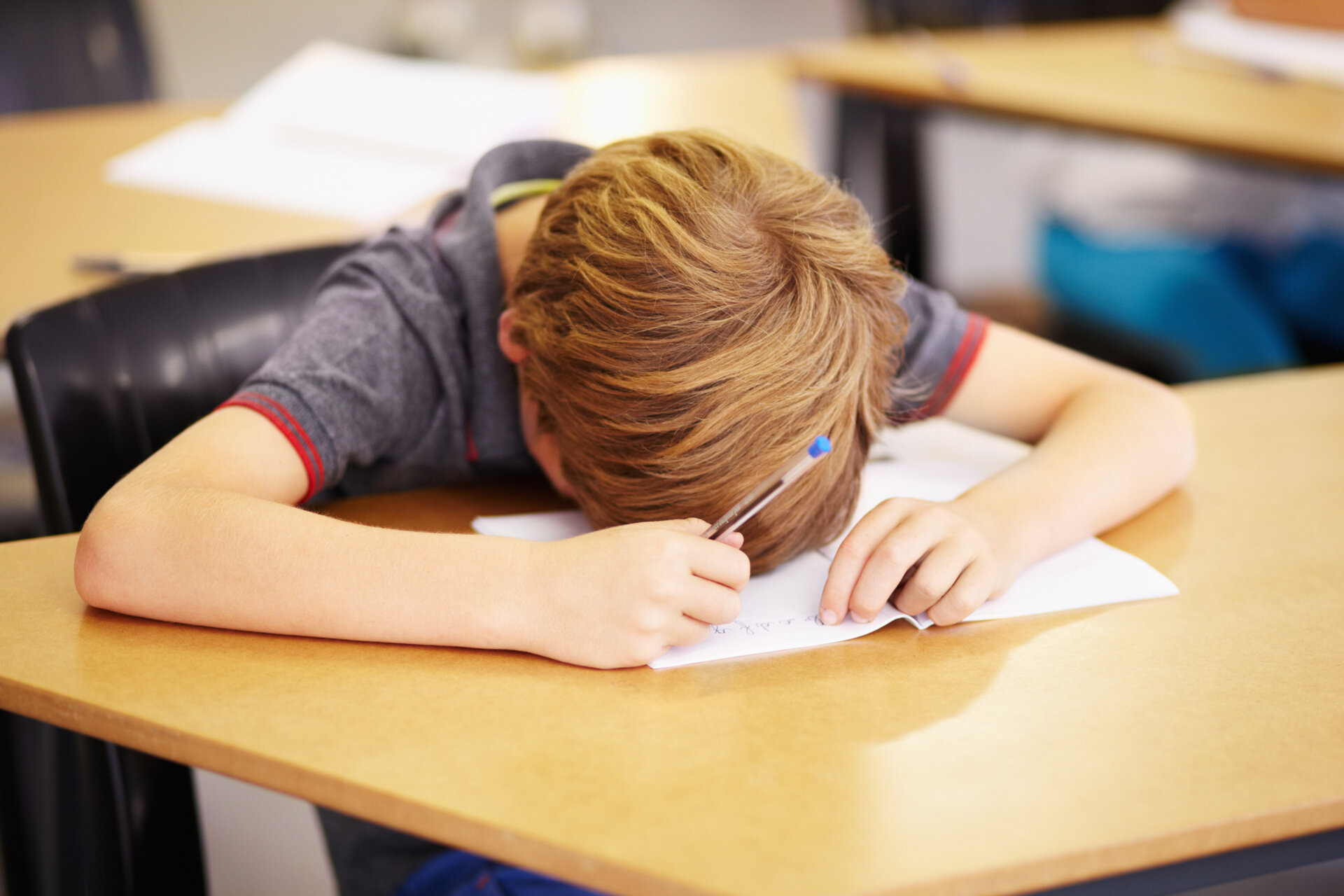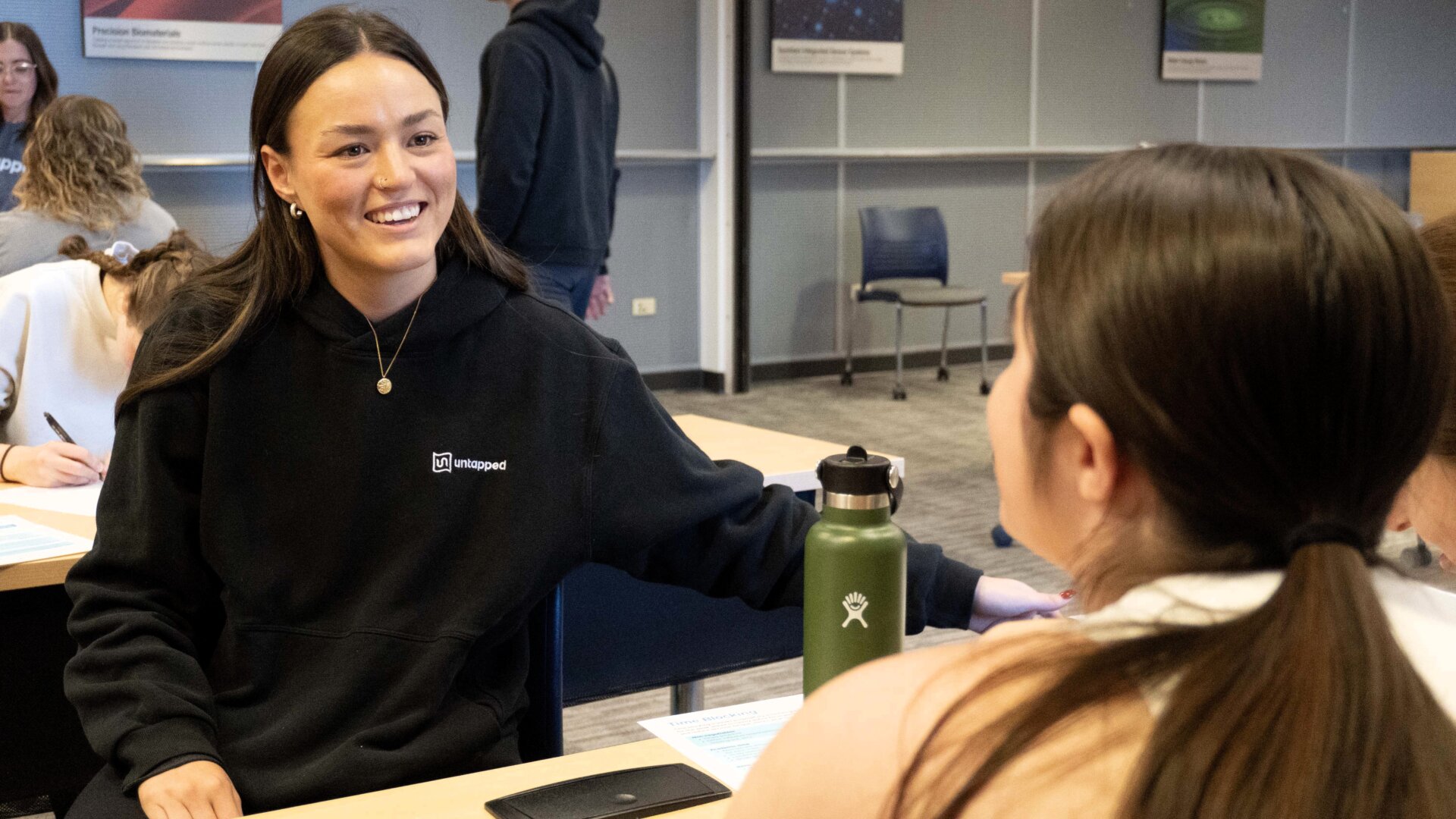Mike slumped into the passenger seat of his mom’s car, exhausted after another long soccer practice. As they pulled out of the school parking lot, his mom asked about his plans for the evening. Mike remembered the list of assignments that he needed to get done. The thought of sitting down and focusing for several hours after an intense practice felt overwhelming. This scenario is all too familiar for many student-athletes.
As the new school year begins, we aim to develop mental toughness early on. This skill isn’t just about performing well on the field or court; it’s equally important for academic success. Student-athletes face the challenge of completing homework after a long day of classes and practice. Mental toughness is a skill that can be developed. Let’s look more closely.
Understanding Mental Toughness
Mental toughness is the ability to consistently perform at your best, regardless of circumstances, by staying focused, confident, and resilient. For student-athletes, this means balancing the demands of sports and academics, pushing through fatigue, and maintaining discipline.
It’s not just about perseverance; it’s about adopting a mindset that enables clear thinking, strategic action, and knowing when to push or rest. In this blog, we’ll explore practical strategies to help young athletes develop mental toughness.
Neutral Thinking
The internal dialogue athletes maintain can significantly impact their performance. Neutral thinking involves viewing situations through a factual lens without allowing positive or negative emotions. This is the approach of the best athletes to try to stay grounded in reality and make clear decisions under pressure.
Trevor Moawad describes neutral thinking as “Neutral thinking forces us to seek the truth. But it doesn’t require us to render an opinion. If we missed ten shots in a row, it doesn’t mean we stink at shooting a basketball. If we made ten shots in a row, it doesn’t necessarily mean we are great at shooting a basketball.”
How Parents and Coaches Can Help:

- Process over product: Explain that neutral thinking takes time to develop, but it’s a game-changer. It requires consistent practice to view situations as they are rather than through a biased lens.
- Model neutral thinking: In your discussions with athletes, demonstrate this. Instead of reacting emotionally to wins or losses, focus on the facts, the next steps, and what can be learned.
- Encourage reflection: After both games and schoolwork, have athletes reflect on what went well and what could be improved, sticking to the facts.
- Process over product: Explain that neutral thinking takes time to develop, but it’s a game-changer. It requires consistent practice to view situations as they are rather than through a biased lens.
- Model neutral thinking: In your discussions with athletes, demonstrate this. Instead of reacting emotionally to wins or losses, focus on the facts, the next steps, and what can be learned.
- Encourage reflection: After both games and schoolwork, have athletes reflect on what went well and what could be improved, sticking to the facts.
Real-Life Example of Neutral Thinking:
During her varsity basketball game, Sarah missed several shots in the first half, which led to frustration and self-doubt. Instead of letting these emotions take over, she applied neutral thinking by analyzing her performance factually. She noticed that her form was slightly off and made a mental note to correct it.
After the game, she reviewed her shot selection with her coach, who reinforced the neutral thinking approach by focusing on the adjustments rather than the missed shots. This mindset allowed Sarah to stay focused and perform better in the second half, contributing to her team’s win.
Accountability and Goal-Setting
Setting clear goals and being accountable for them is important for developing mental toughness.
How Parents and Coaches Can Help:
- Assist in setting specific goals: For example, if the goal is to increase free-throw accuracy, work together to set measurable targets.
- Establish a system for regular check-ins: Encourage student-athletes to reflect on their progress, whether they’re on track or need to adjust their efforts.
- Be mindful of your role: Young athletes might resist parental accountability. Your relationship with your child is more important than any class or athletic goal. If your child struggles to accept responsibility, consider a mentor or coach to help them achieve their goals.
- Check-ins about how they are feeling: Regularly check in on their physical and mental well-being to adjust support and expectations. We want them to stay disciplined without burning out.

Real-Life Example of Accountability and Goal-Setting:
Jake, a high school linebacker with dreams of playing college football, was on the radar of several recruiters. However, his strength needed improvement to compete at the next level.
Together with his coach, Jake set a goal to increase his bench press and squat numbers by 15% over the next three months. His coach broke this goal down into weekly targets and closely monitored Jake’s progress in the weight room. By sticking to a rigorous strength training regimen and staying accountable to his goals, Jake not only reached but exceeded his strength targets.
Recovery and Rest
An often overlooked part of mental toughness is having the discipline to rest. If we push too hard for too long, we risk burning out. True mental toughness means knowing when to push hard and when to recover.
How Parents and Coaches Can Help:
- Promote recovery routines: Encourage athletes to integrate regular stretching, foam rolling, and proper sleep into their routines.
- Highlight the importance of rest: Reinforce that taking time to rest is not a sign of weakness but a strategy to maintain peak performance. Professional athletes and great students have learned the importance of rest.
- Encourage mindful recovery: Suggest that athletes disconnect from their devices or engage in activities that promote mental relaxation, such as reading or light walks.
Real-Life Example of Recovery and Rest:
Emily, a competitive swimmer, struggled with fatigue and declining performance midway through her season. Her coach noticed this and introduced a recovery routine that included regular stretching, foam rolling, and mindfulness exercises to help her relax mentally.
Emily initially resisted, believing that pushing harder was the answer. However, after a few weeks of recovery practice, her energy levels improved, and she was able to perform better during both training and competitions.
The After Practice Academic Challenge
Starting academics after a long day of school and practice is one of the toughest mental challenges young athletes face. The physical and mental fatigue can make it tempting to procrastinate, rush through assignments, or just not do their homework.
How Parents and Coaches Can Help:
- Empathize with the difficulty: Acknowledge the challenge and praise efforts to overcome it.
- Create a focused environment: A quiet, dedicated study space can help athletes transition from sports to academics. When it comes to distractions, remind them of the discipline equals freedom model.
- Teach time management: Help student-athletes develop skills to make the most of their limited energy. Time is their most valuable resource, and we need to use it wisely.

Real-Life Example of Doing Homework After Practice:
After a grueling track practice, Jenna often found it difficult to focus on her homework. To help her overcome this challenge, her parents set up a dedicated study space at home and encouraged her to take short breaks between subjects. They also recommended she attend office hours to decrease her time doing homework outside of school.
They also introduced a time management system where Jenna planned her study sessions ahead of time, prioritizing the most important tasks. Over time, Jenna learned to transition more smoothly from sports to academics, which not only improved her grades but also helped her develop the mental toughness needed to balance both aspects of her life.
Building mental toughness is a journey that requires consistent effort from both athletes and their support systems. By focusing on these strategies, young athletes can develop the resilience needed to excel in both academics and athletics.
Help your student build mental toughness today with coaching from Untapped Learning. We empower student-athletes to excel both on the field and in the classroom.
For More:





